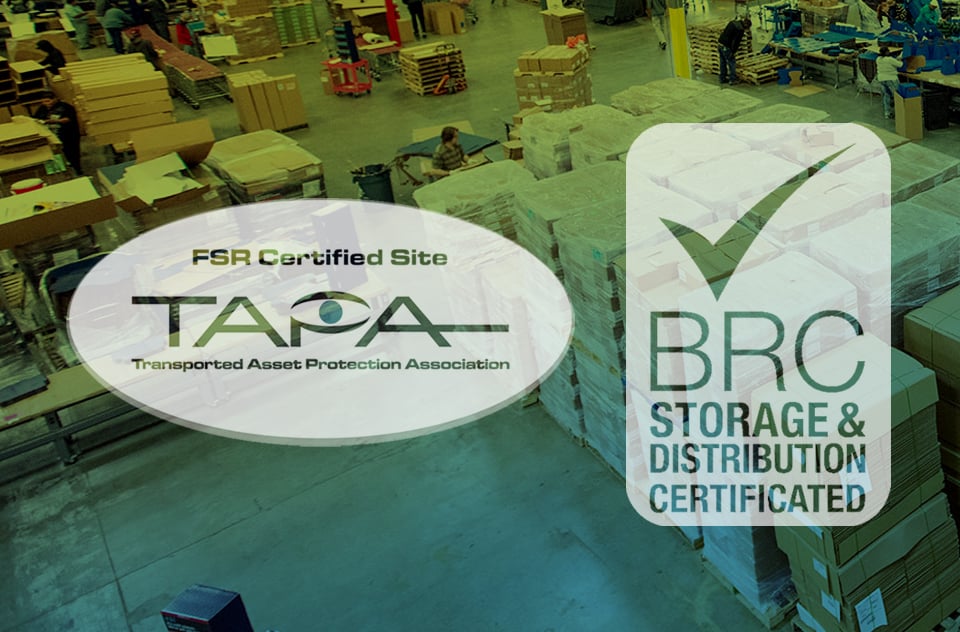In 2018, Bay Cities and the Royal Group teamed up to create The Royal Bay, a state-of-the-art 323,000 square foot fulfillment service operation strategically located in Chicago. Royal Bay has 40 loading docks, 2 climate-controlled rooms, 24-hour security monitoring, and an automated racking system, which maximizes efficiency in both time and storage space for pack out boxes. Security measures must be strict with the vast amount of inventory being accounted for, which is why Royal Bay ensures supply chain protection with the TAPA Facility Security Requirements and BRC Global Standard for Storage and Distribution certifications.
What do these certifications mean?
Cargo crime is one of the biggest supply chain challenges for any manufacturer that deals with valuable, high risk products. As industries grow bigger and wiser to theft, well, so do the thieves unfortunately. Today, organized crime rings are operating globally and using increasingly sophisticated attempts to obtain cargo. That’s why TAPA is so important to the security of Bay Cities’ fulfillment services. TAPA is a unique forum that unites global manufacturers, logistics providers, freight carriers, law enforcement agencies, and other stakeholders with the common aim of reducing losses from international supply chains. TAPA’s primary focus is theft prevention using real-time intelligence and the latest preventative measures. Facility Security Requirements (FSC) have been established by TAPA’s security professionals within the theft sensitive industry to address the nature by which theft sensitive products are handled.
The BRC storage and Distributions deals with a different kind of security that is just as, if not more, important.
The BRC Storage and Distribution Standard is internationally recognized as a verification of a site’s good food distribution practices. The goal of the certification is to ensure that the quality and safety of products during storage and distribution are maintained. Certified storage and distribution operations can gain access to new markets as the certification assures companies that their products will be managed in a safe and legal manner protecting against loss from activities such as temperature abuse, physical damage, and theft. Operations managing food products at different points in the food supply chain can achieve the necessary level of control by implementing a product safety management system in compliance with the Storage and Distribution Standard.
At the end of the day, it doesn’t matter how dazzling a display of ours might be, or how impressive our design work is on pack out boxes. If we cannot secure the package, then it’s all for nothing. Certifications like these are the gears in which our business operates around.


/BC_Logo2_White.png?width=300&height=83&name=BC_Logo2_White.png)